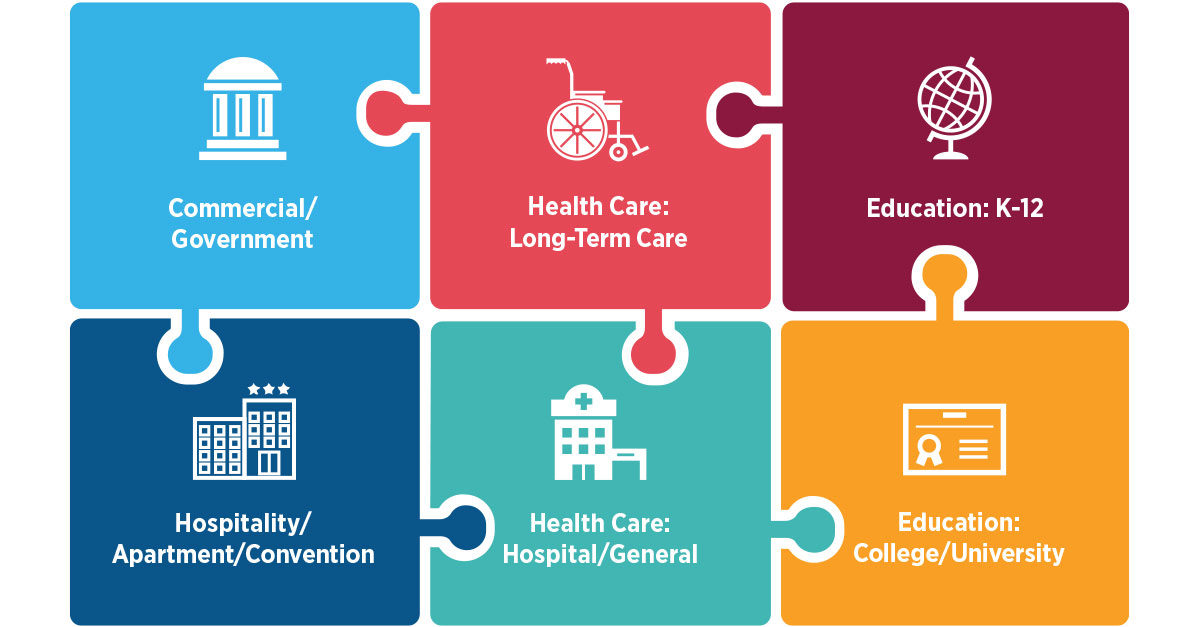Key Trends Forming the Future of Facility Management in 2024
As we look in advance to 2024, the landscape of facility monitoring is positioned for significant makeover, driven by a number of crucial patterns. The combination of wise building modern technologies and a change in the direction of data-driven decision-making pledge to boost functional performance while focusing on sustainability in method.
Smart Structure Technologies

Smart structure innovations incorporate a large array of systems, consisting of intelligent illumination, heating and cooling controls, and safety and security systems. By integrating these systems, center managers can keep track of and change specifications in real-time, resulting in substantial reductions in energy waste and functional costs. For instance, wise sensors can spot tenancy levels and adjust lights and temperature level accordingly, ensuring that energy is only utilized when necessary.
In addition, these modern technologies assist in improved data collection, permitting companies to track use patterns and determine chances for additional renovations. The execution of smart building innovations not only adds to sustainability objectives yet likewise creates healthier workplace that can enhance worker efficiency and satisfaction.
As we move into 2024, the fostering of smart building innovations will likely increase, mirroring a more comprehensive shift towards more intelligent, receptive, and lasting facility monitoring techniques.
Data-Driven Choice Making
Progressively, companies are leveraging data-driven choice making to improve facility administration practices. By harnessing data analytics, facility managers can derive workable understandings that considerably boost operational performance and source allotment. The combination of sophisticated modern technologies, such as IoT sensors and real-time tracking systems, enables the collection of substantial amounts of data on building efficiency, tenancy rates, and power consumption.
This riches of info enables center supervisors to determine fads, anticipate maintenance needs, and proactively address concerns prior to they intensify. Anticipating analytics can forecast tools failures, reducing downtime and repair work costs. Furthermore, data visualization devices facilitate far better communication amongst stakeholders, ensuring that informed decisions are made collaboratively.
In addition, data-driven techniques enhance calculated preparation by allowing facility supervisors to examine the efficiency of current methods and make informed selections concerning investments in innovation or infrastructure. As organizations significantly focus on functional quality, data-driven decision production is poised to end up being a cornerstone of successful facility management strategies in 2024 and beyond. Eventually, the ability to leverage information effectively will equip companies to create a lot more reliable, productive, and resilient centers.
Sustainability and Environment-friendly Practices
The focus on data-driven choice making normally aligns with the expanding concentrate on sustainability and green methods within facility management. As organizations increasingly focus on environmental responsibility, facility managers are leveraging analytics to enhance source usage, reduce waste, and reduce carbon footprints. This calculated method makes it possible for the integration of energy-efficient systems, such as LED lights, clever cooling and heating controls, and sustainable energy sources into facility procedures.
In addition, the implementation of sustainable practices prolongs beyond power usage. Facility supervisors are embracing green products and advertising reusing campaigns to produce a round economy within their facilities. This not just enhances the ecological account of the organization yet additionally promotes a culture of sustainability amongst employees.
Compliance with ecological guidelines is one more critical facet driving the adoption of green techniques. By utilizing information analytics, center supervisors can keep track of conformity metrics and determine locations for renovation, ensuring adherence to neighborhood and worldwide sustainability standards.
Crossbreed Job Models
A significant change in the direction of hybrid job designs is improving the landscape of center monitoring in 2024. This paradigm incorporates remote and in-office job, necessitating a reevaluation of room usage, resource allowance, and employee engagement methods. Organizations are progressively identifying the value of versatile workspaces that accommodate diverse needs and choices.
Facility managers must adapt by implementing versatile workplace styles that support collaborative initiatives while offering locations for focused work. This includes the integration of technology to promote seamless interaction and cooperation among remote and in-office staff members. Smart building remedies, geared up with sensors and analytics, enable real-time monitoring of room usage, making it possible for organizations to maximize their atmospheres successfully.
In addition, hybrid work models stress the demand for reliable center monitoring that focuses on staff member experience. This incorporates not just innovation and area style however likewise the advancement of plans that advertise a well balanced work-life dynamic. As business navigate this transition, the function of facility administration ends up being critical in developing a dexterous office that fosters performance and drives business success. Basically, the hybrid job model is changing center management, encouraging an aggressive approach to meet the progressing needs of the labor force.
Enhanced Owner Health
As companies accept hybrid work try this out designs, an increased emphasis on passenger wellness is ending up being essential to facility management techniques. Facility Management. This change acknowledges that a completely satisfied and healthy labor force directly impacts efficiency and retention prices. Facility managers are now prioritizing atmospheres that advertise mental and physical wellness, incorporating aspects such as all-natural illumination, biophilic layout, and accessible wellness sources

Technology plays a vital role in this development. Smart structure systems can keep track of ecological factors and change setups in real-time, guaranteeing ideal comfort levels - Facility Management. Comments systems, such as tenancy sensors and worker surveys, enable facility supervisors to consistently fine-tune wellness efforts based on passenger demands.

Conclusion
In 2024, the future of center management will be significantly affected by the find out here integration of smart building innovations and data-driven decision-making, cultivating boosted functional effectiveness. These patterns jointly underscore the evolving landscape of facility administration in response to modern challenges and possibilities.
Facility supervisors are adopting environmentally friendly products and advertising reusing initiatives to create a circular economy within their facilities.A substantial shift towards crossbreed work versions is reshaping the landscape of facility administration in 2024.Moreover, crossbreed work versions highlight the demand for reliable center monitoring that focuses on employee experience.As companies embrace hybrid job versions, an increased focus on owner wellness is ending up being important to facility administration strategies.In 2024, the future of facility monitoring will be considerably affected by the assimilation of smart building modern technologies and data-driven decision-making, fostering boosted functional efficiency.